
Pope: From Lourdes to Seoul, I entrust the world’s sick and suffering to Mary Recalling the apparition of Our Lady of Lourdes and the World Day of the Sick, which this year is being celebrated in Seoul, Benedict XVI exhorted health workers and relatives of sick people to offer “human support” and “spiritual accompaniment”, especially those who are terminally ill.
Vatican City (AsiaNews) – On the feast of Our Lady of Lourdes, now also the World Day of the Sick, the pope did not stop at talking about miracles and healing. Thanking health workers and relatives of sick people, he called for the “development of palliative care that offers holistic support”, giving “terminally ill people the human support and spiritual accompaniment that they badly need.”

Benedict XVI recalled the “prodigious event” of “the first apparition of the Virgin Mary to St Bernadette, which took place on 11 February 1858 in the grotto of Massabielle in Lourdes”. This event, continued the pope, made “the location, situated in the French slopes of the Pyrenees, a global center for pilgrimages and intense Marian spirituality. In this place, for nearly 150 years now, the call of Our Lady to prayer and repentance still reverberates powerfully, a quasi permanent echo of the invitation with which Jesus inaugurated his preaching in Galilee: ‘The time is fulfilled, and the kingdom of God has come near; repent, and believe in the good news.’ (Mk 1:15).”
Although miracles and healings confirmed by a team of doctors often take place at Lourdes, the pope saw fit to draw attention to a more profound miracle: “Moreover, the shrine has become a destination of many sick pilgrims who, putting themselves in a position to listen to the Most Holy Mary, are encouraged to accept their sufferings and to offer them for the salvation of the world, uniting them with those of the crucified Christ.”
Benedict XVI explained the connection between the feast of Our Lady of Lourdes and the World Day of the Sick: “It was precisely because of this link between Lourdes and human suffering that, 15 years ago, the beloved John Paul II wanted the World Day of the Sick to be celebrated on the feast of Our Lady of Lourdes. This year, the focus of this feast is in the city of Seoul, capital of South Korea, where I sent Cardinal Javier Lozano Barragán, President of the Pontifical Council for Pastoral Health Care to represent me. I send an affectionate greeting to him and to all those gathered there.”
The pope continued: “I would like to extend my thoughts to health workers across the world, well aware of the importance of their service to sick people in our society. In particular, I want to express my spiritual closeness and my affection for our sick brothers and sisters, especially those who are afflicted by more serious and painful illnesses. On this Day, our attention is turned towards them in a special way. It is necessary to support the development of palliative care that offers holistic support and gives terminally ill people the human support and spiritual accompaniment that they badly need.”
Before the Angelus prayer, the pope reminded his audience about a Eucharistic Celebration that will be held this afternoon in St Peter’s Basilica, with many sick people and pilgrims. Mass will be presided over by Cardinal Camillo Ruini, Vicar of the diocese of Rome. Benedict XVI said: “At the end of Holy Mass, I will have the joy, like last year, of spending some time with them, reliving the spiritual climate experienced at the grotto of Massabielle. With this Angelus prayer, I would like to entrust to the maternal protection of the Immaculate Virgin all those in the world who are sick and suffering in body and spirit.”
![[Unam Sanctam]](https://blogger.googleusercontent.com/img/b/R29vZ2xl/AVvXsEiymQ2adTjpZ1ABhPBbBBquiPCxeQrc4Jy_97vOikT0wGQeJleriiXQy6ebnb0jrYe-TfvcK77txStB4aIwVAdD41ZdMkVfNtFGC0JX6LBV9B8mfeRZaIAM7Sj-011ag3DiKQzv/s1600/headerdivinemercy.jpg)



































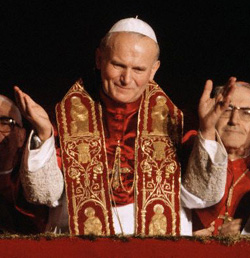
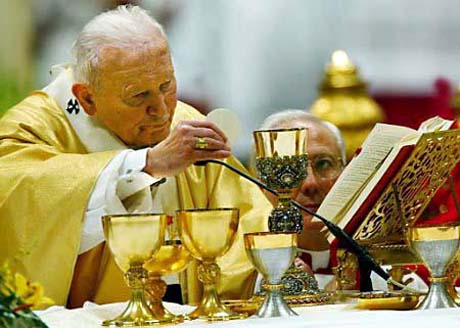







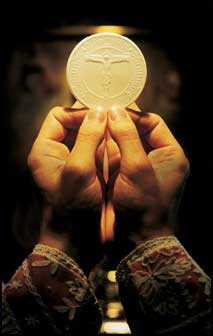


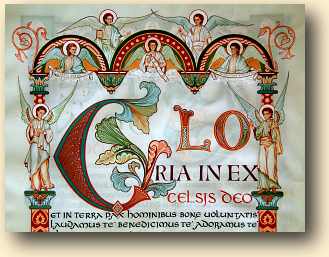

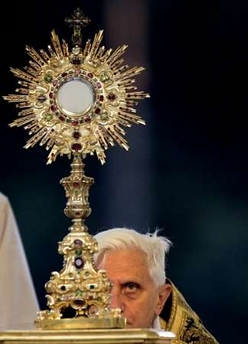


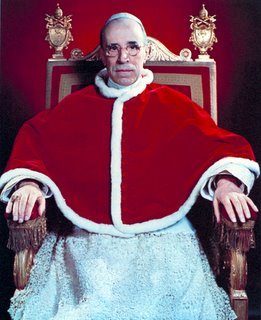




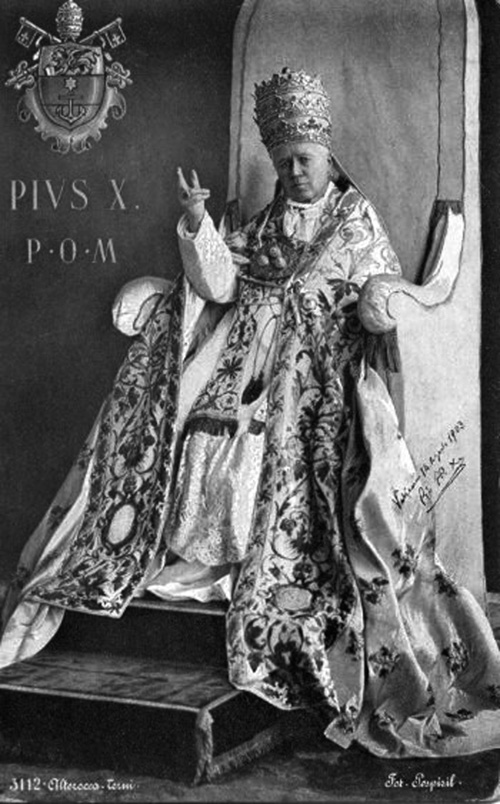



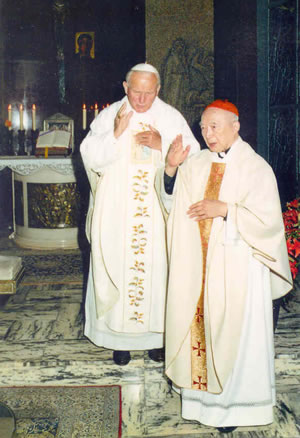






5 comments:
Query - What does it mean to 'offer up' one's suffering?
Wow, Mr. Smith, you sure know how to ask a loaded question! LOL!
I'm going to have to post the answer in the main blog because it's rather long and would also benefit others who might not have heard about 'offering up' one's sufferings or would like to know more about it.
Thanks for asking the question and for allowing me to deepen my thought on this. Look out for the post tmrw.
:-) Difficult questions are a favourite of mine. But only because they get worthwhile answers. I look forward to tomorrow's post, Andrew, thanks.
Hope you don't mind if I ask more such in future?
The Redeemer suffered in place of man and for man. Every man has his own share in the Redemption. Each one is also called to share in that suffering through which the Redemption was accomplished. He is called to share in that suffering through which all human suffering has also been redeemed. In bringing about the Redemption through suffering, Christ has also raised human suffering to the level of the Redemption. Thus each man, in his suffering, can also become a sharer in the redemptive suffering of Christ.
--Pope John Paul II, Apostolic Letter "Salvifici Doloris", #19
Mr. Smith, I was doing some background research to write up my post when I found 2 resources that basically stated all that I wanted to say, but only in a better way =)
So, I'm going to recommend to you firstly, the article on Redemptive Suffering which provides a good summary and all the relevant Scriptural citations as well as material from the Tradition of the Church and St. Thomas Aquinas. A good read.
Another resource that I would like to recommend is Pope John Paul's Apostolic Letter, Salvifici Doloris, On the Christian Meaning of Human Suffering.
These 2 documents basically cover all the bases.
I would only like to highlight one important thing which undergirds the entire concept of Redemptive Suffering, which is the doctrine of the Communion of Saints.
And if one member suffers, all the members suffer with it; if one member is honored, all the members rejoice with it. Now you are the Body of Christ, and individually members of it.
- 1 Corinthians 12:26
We all hang together through our incorporation in Christ and through Him and His Sacrifice, Passion and Death, our own suffering has meaning and becomes redemptive.
Now I rejoice in what was suffered for you, and I fill up in my flesh what is still lacking in regard to Christ's afflictions, for the sake of his body, which is the church.
- Col 1:24
Thanks a lot, Andrew. Off to read that now, then. I'm sure I'll have more awkward questions soon enough, though. I'm still learning so much new stuff.
Post a Comment